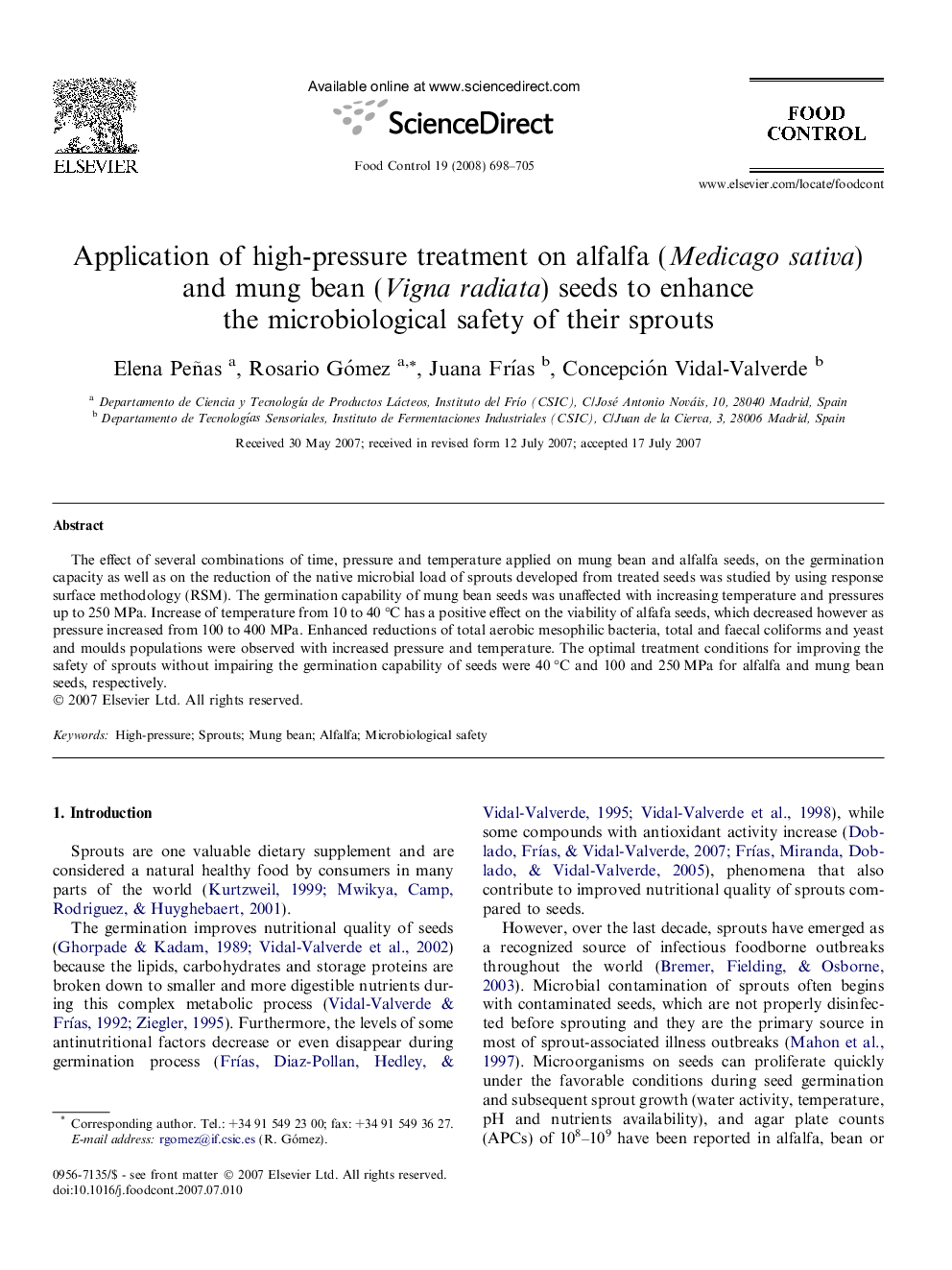| Article ID | Journal | Published Year | Pages | File Type |
|---|---|---|---|---|
| 4560545 | Food Control | 2008 | 8 Pages |
The effect of several combinations of time, pressure and temperature applied on mung bean and alfalfa seeds, on the germination capacity as well as on the reduction of the native microbial load of sprouts developed from treated seeds was studied by using response surface methodology (RSM). The germination capability of mung bean seeds was unaffected with increasing temperature and pressures up to 250 MPa. Increase of temperature from 10 to 40 °C has a positive effect on the viability of alfafa seeds, which decreased however as pressure increased from 100 to 400 MPa. Enhanced reductions of total aerobic mesophilic bacteria, total and faecal coliforms and yeast and moulds populations were observed with increased pressure and temperature. The optimal treatment conditions for improving the safety of sprouts without impairing the germination capability of seeds were 40 °C and 100 and 250 MPa for alfalfa and mung bean seeds, respectively.
